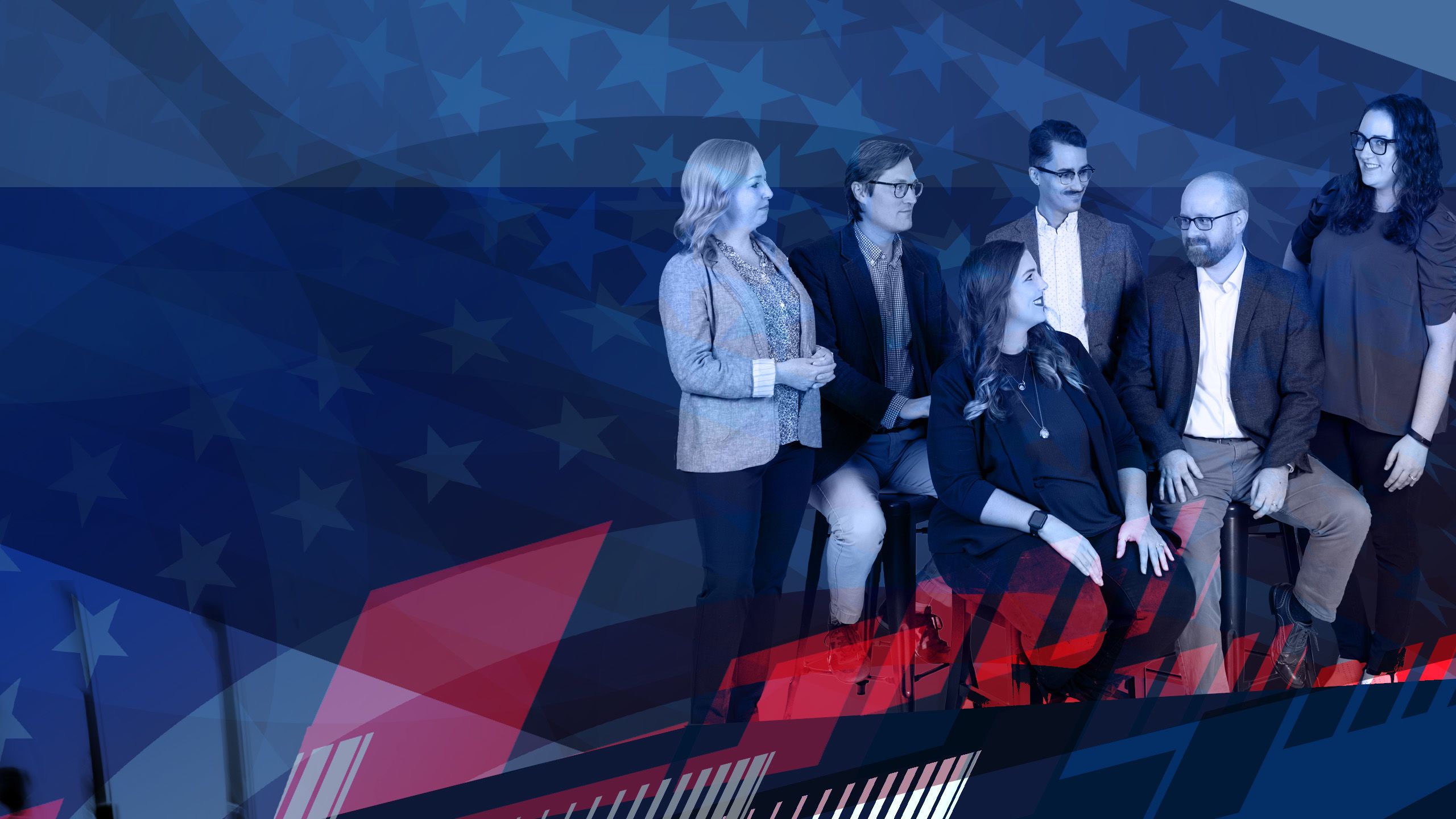The Office of Politics, Communication and Media (OPCaM) at The University of Alabama is an innovative hub for interdisciplinary research and public-facing dialogue. Situated at the intersections of politics, communication, and media, OPCaM creates civic and community engagement on regional, national, and international levels by connecting high-quality research with public conversations that shape and respond to the growing impacts and rapidly evolving role of politics, communication, and media in democratic and public life.
OPCaM is one of the first research offices of its kind to consider politics broadly, defining it not only through governments, political parties, and civic and political participation, but also in terms of the ways communication and media practices are intertwined with the social, cultural, and historical contexts of
We welcome all interest and forms of collaboration. With researchers studying politics, democracy, civic engagement, social movements and reforms, rhetoric, history, social media, culture, and technology, we have no shortage of opportunities for you to get involved.
Read all about us in the College of Communication & Information Science’s Alumni Magazine!
For press and media inquiries, please click here. democracy and everyday life.
An Interdisciplinary Approach to Political Communication
The Office of Politics, Communication and Media at The University of Alabama (OPCaM) was born out of a simple premise, yet one that seems radical against rigid stratifications of academic disciplines: How can politics, media, and communication be conceptualized broadly, with care to how civic life and democracy is always intertwined with the historical, cultural, and everyday?
Our researchers come from a range of theoretical and methodological backgrounds. We approach research from qualitative, quantitative, historical, computational, rhetorical and humanistic methods invoking a range of theoretical and disciplinary perspectives from Communication Studies, Journalism, Political Communication, Information Science, Risk and Crisis Communication, Digital Media Studies, Cultural Studies, Internet Studies, Health Communication, Feminist Studies and American Studies.
OPCaM is housed within the Institute for Communication and Information Research in the College of Communication & Information Sciences at The University of Alabama.
Common themes in our research agendas
- Misinformation, disinformation and media literacy
- Polarization, extremism and hostility
- Civic and political engagement
- Public conversation, dialogue, and discourse
- Networked publics and communication technologies
- Emergent and digital media technologies
- Regulation of digital media
- The roles of race, class, gender, sexuality, ability, religion and nationality in the politics of communication
OPCaM Executive Committee
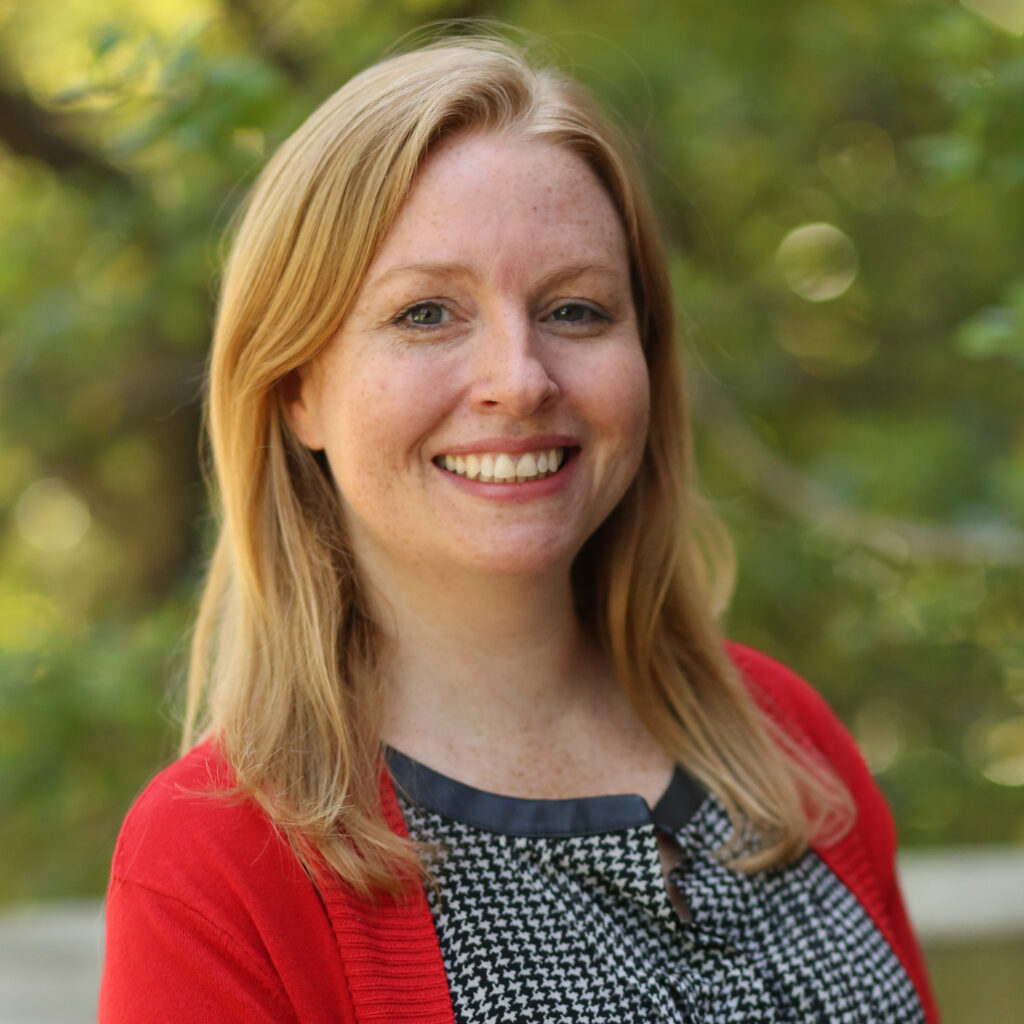
Cynthia Peacock, co-director (PhD, University of Texas) is an assistant professor in the Department of Communication Studies at the University of Alabama. She specializes in political communication and examines the ways in which people form, change, and express their political opinions. Her work focuses on news selection and political discussion and the roles of partisanship and disagreement in both. Her current projects examine hyperpartisan news use, politically dissimilar romantic relationships, and the gender gap in political expression. Among other journals, her work has appeared in Mass Communication & Society, Journalism, Communication Studies, and Social Science Computer Review.
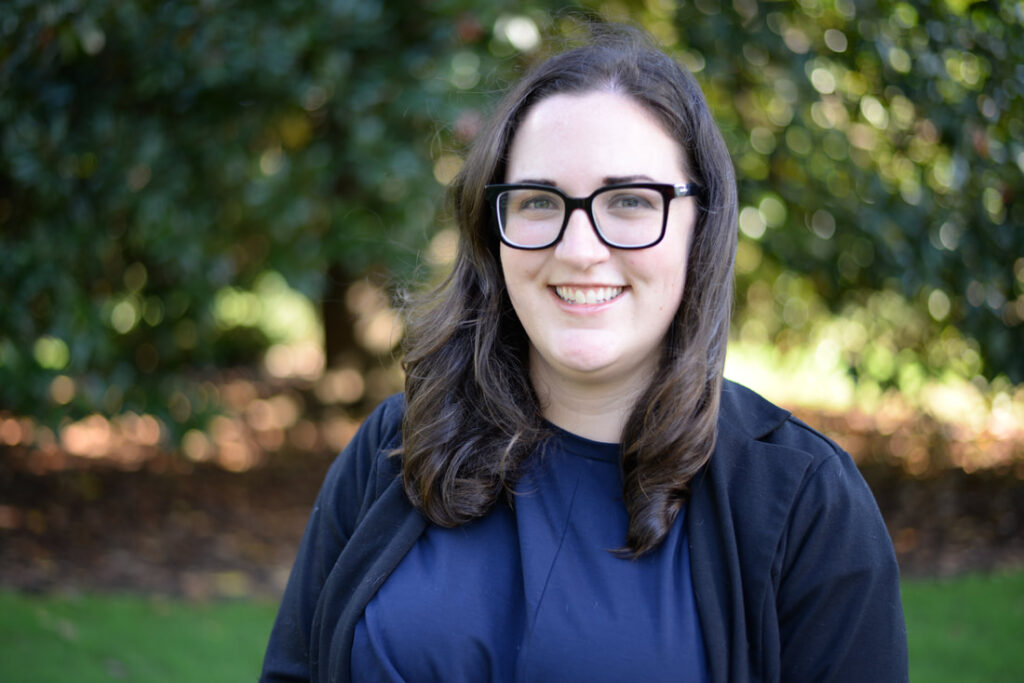
Jessica Maddox, co-director (Ph.D., University of Georgia) is an award-winning social media researcher who studies Internet popular culture and social media platforms. She is an associate professor in the Department of Journalism and Creative Media at the University of Alabama. Her research examines content creators and how platforms play a role in shaping Internet popular culture. Her work has been published in New Media & Society, Critical Studies in Media Communication, Television & New Media, Social Media + Society, and Feminist Media Studies and has also been featured in CNN, The Hill, Digital Diplomacy, Mashable, and CBC Radio One. She’s a native of Atlanta, Georgia, who is slowly learning how to say “roll tide.”
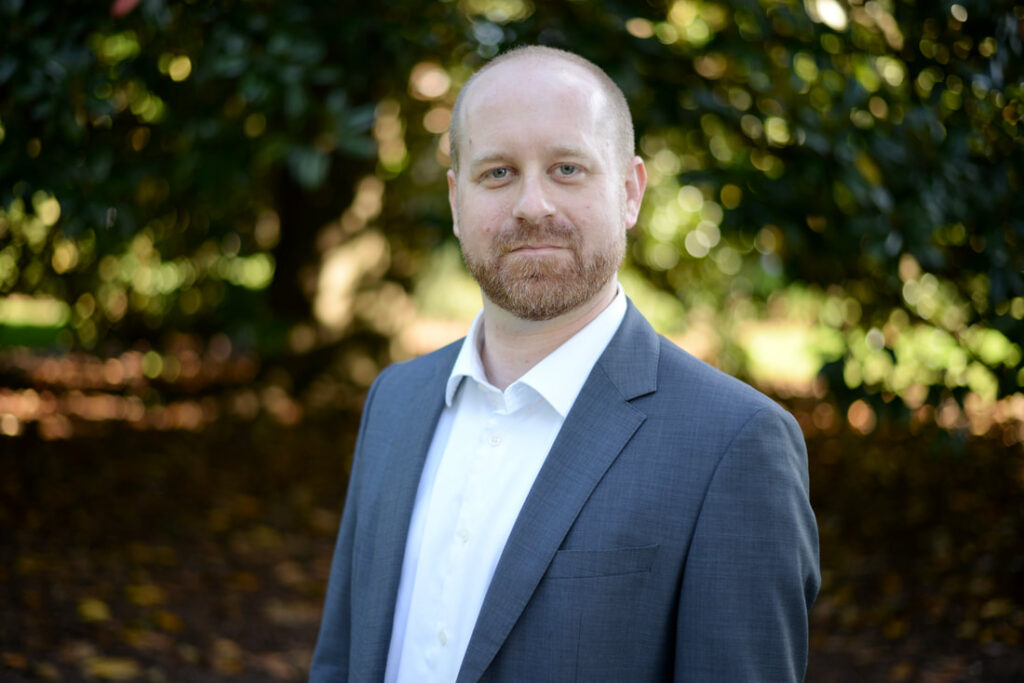
Matthew Barnidge (Ph.D., University of Wisconsin-Madison) is an associate professor in the Department of Journalism & Creative Media at the University of Alabama. His research specializes in political communication and news audiences on digital media platforms, and he studies these topics in comparative and multiple national contexts. He sits on the editorial boards of several prominent journals in the field of communication, including Journal of Communication and Communication Research, and he has published more than 35 peer-reviewed articles in journals such as Journal of Communication, Political Communication, International Journal of Press/Politics, and Digital Journalism, among others. Matthew is from Houston, Texas, and he spent two years living in Vienna, Austria, where he was a postdoctoral researcher at the University of Vienna.
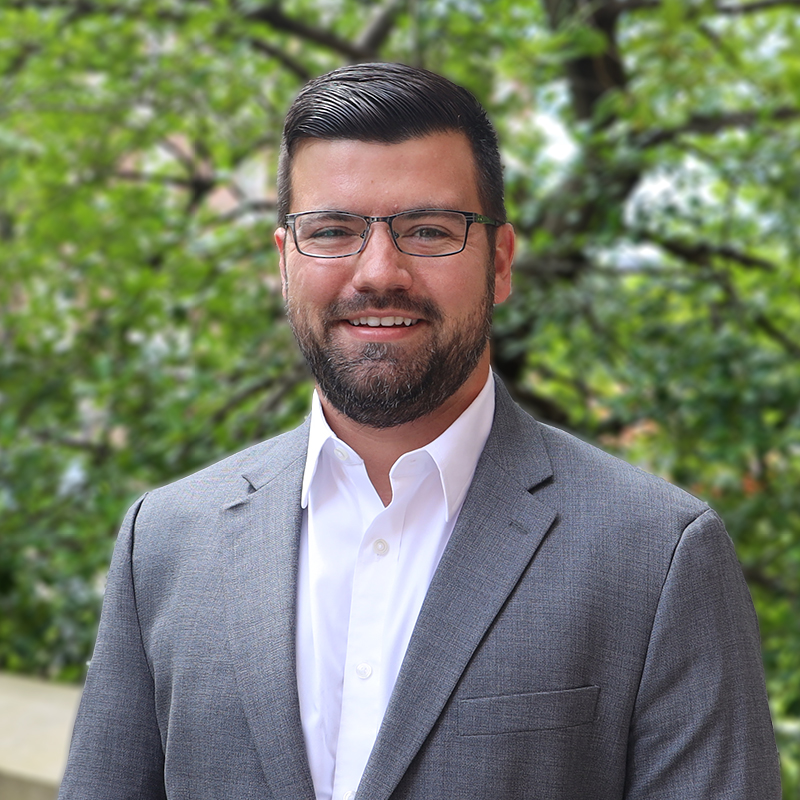
Josh C. Bramlett (Ph.D., University of Missouri) is an assistant professor in the department of Advertising & Public Relations. His research examines strategic political communication in contexts such as political campaign communication and digital political communication. His recent work has appeared in outlets such as the Atlantic Journal of Communication, Communication Quarterly, and Argumentation and Advocacy. During the 2020 election, he frequently appeared on local radio in New Mexico to discuss presidential primary and general election debates. He is available for media commentary on topics such as televised candidate debates, political advertising, presidential speeches and politicians, and social media. Dr. Bramlett is a native of Conway, Arkansas, and a lifelong fan of football, comics and presidential history.
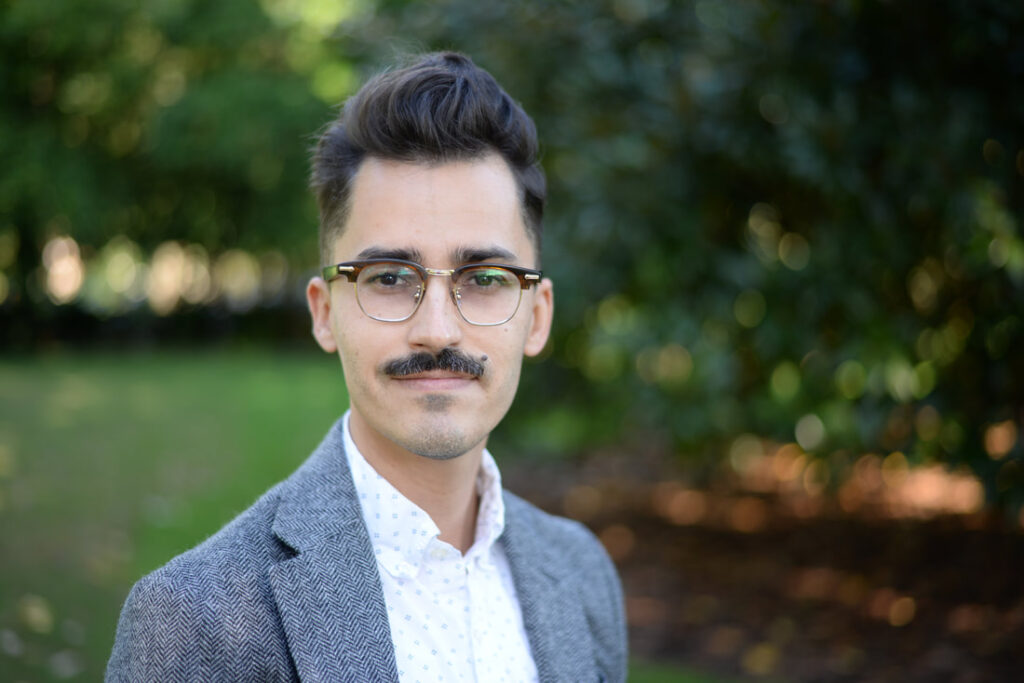
A.J. Bauer (Ph.D., New York University) is an assistant professor in the department of Journalism & Creative Media. He uses archival, ethnographic and journalistic methods to research historical and contemporary right-wing media and conservative news in the United States and beyond. He is co-editor, with Anthony Nadler, of News on the Right: Studying Conservative News Cultures (Oxford, 2019). His work has appeared in American Journalism, Columbia Journalism Review, Radical History Review and The Harvard Kennedy School (HKS) Misinformation Review. His commentary has appeared in New Inquiry, Abusable Past, The Guardian and TV Guide. His hobbies are memes and puns.
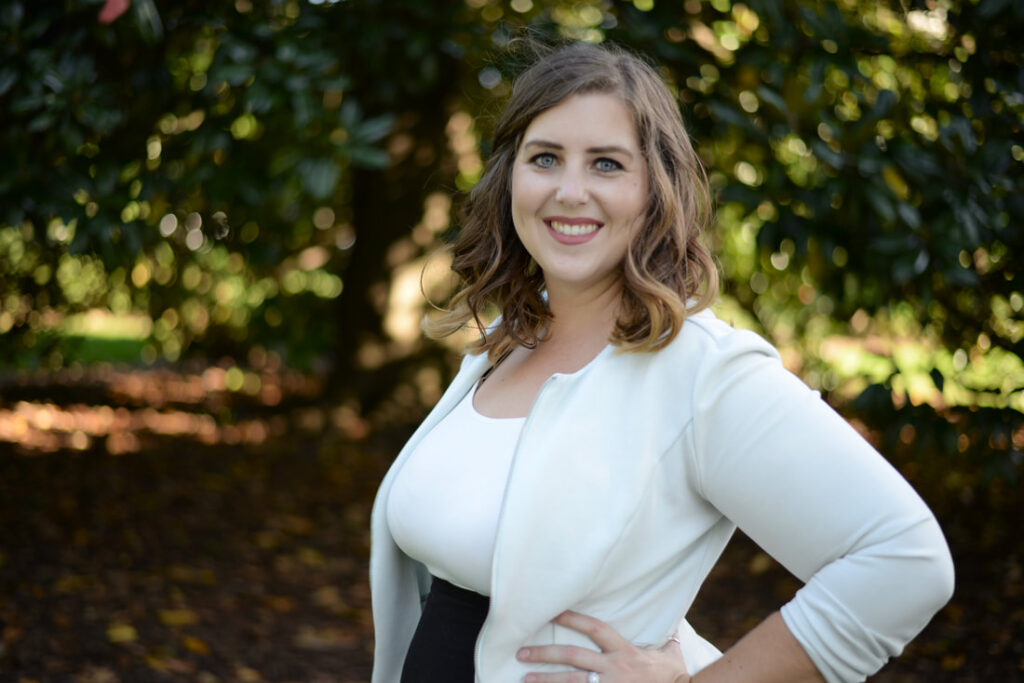
Kaitlin Miller (Ph.D., University of Oregon) is an assistant professor in the department of Journalism & Creative Media. Using sociological perspectives, her research in journalism studies focuses on harassment of journalists, political communication and media ownership. She is a former live TV reporter and teaches a variety of courses in broadcast journalism. Her work has been published in Journalism, Journal of Media Ethics, Journalism Practice, and Journal of Broadcasting and Electronic Media.
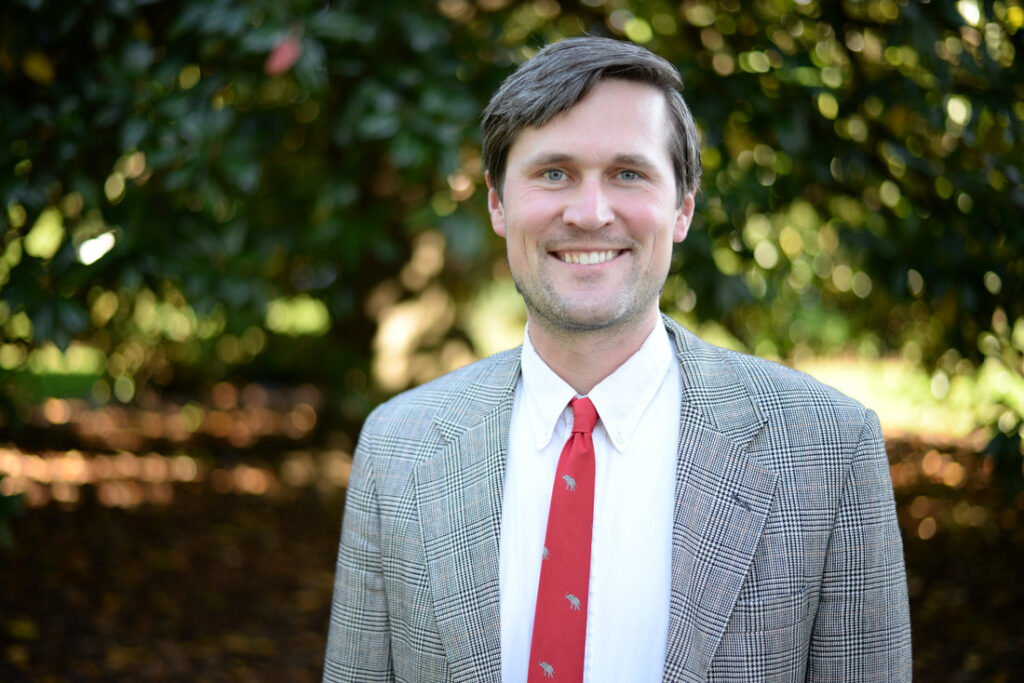
Jessy Ohl (Ph.D., University of Nebraska-Lincoln) is associate professor of rhetoric and political discourse at The University of Alabama. His research specializes in the relationship between rhetoric, democracy and violence. He teaches graduate courses in contemporary rhetorical theory, visual communication and public memory/forgetting. His research has been published in Rhetoric Society Quarterly, Communication and Critical/Cultural Studies, Argumentation & Advocacy, and the Quarterly Journal of Speech, among others.
Peer-reviewed Publications, Book Chapters and Books
Polarization, misinformation, & bias
- Barnidge, Matthew. Forthcoming. “How Geographic Mobility Contributes to Exposure to Political Difference on Social Media Platforms.” Telematics & Informatics.
- Diehl, Trevor, Ramona Vonbun-Feldbauer and Matthew Barnidge. Advance online. “Tabloid News, Anti-Immigration Attitudes, and Support for Right-Wing Populist Parties.” Communication and the Public. https://doi.org/10.1177/2057047319884122
- Barnidge, Matthew, Bumsoo Kim, Cynthia Peacock, Yonghwan Kim and Michael Xenos. Forthcoming. “Social Networks and the Avoidance of Cross-Cutting Political Information: How Social Media Networks Shape the Likelihood of Unfriending (and Other Related Behaviors).” Social Science Computer Review.
- Velasquez, Alcides, Matthew Barnidge and Hernando Rojas. 2021. “Group Consciousness and Corrective Action: The Mediating Role of Pro-Attitudinal Selective Exposure and Perceived Media Bias.” Journalism & Mass Communication Quarterly 19(5): 105-125. https://doi.org/10.1177/1077699020949249
- Bauer, A.J. and Anthony Nadler. 2023. “What Is Disinformation to Democracy?” Bulletin of Technology and Public Life. citap.pubpub.org/pub/u4qzry5p/release/1
- Bauer, A.J. 2021. “Propaganda in the Guise of News: Fulton Lewis, Jr. and the Origins of the Fairness Doctrine,” Radical History Review 141, 7-29. https://doi.org/10.1215/01636545-9170682
- Bauer, A.J. and Anthony Nadler, eds. 2021. “Propaganda Analysis Revisited,” The Harvard Kennedy School (HKS) Misinformation Review, 2:2. https://misinforeview.hks.harvard.edu/article/volume-issue/volume-2-issue-2/
- Boman, C. D. (2021) Examining characteristics of pre-bunking strategies to overcome PR disinformation attacks. Public Relations Review. 47, 5. https://doi.org/10.1016/j.pubrev.2021.102105
- Boman, C.D. & Schneider, E.J. (2021). Finding an antidote: Testing the use of proactive crisis strategies to protect organizations from astroturfing attacks. Public Relations Review. 47, 1. https://doi.org/10.1016/j.pubrev.2020.102004
- White, Mark H., Christian S. Crandall, and Nicholas T. Davis. 2021. “Vicarious Justifications for Prejudice in the Application of Democratic Values.” Social Psychological and Personality Science.
- Lee, J.-Y., Choi, J., & Britt, R. K. (2021). Social media as risk-attenuation and misinformation-amplification station: How social media interaction affects misperceptions about COVID-19. Health Communication. https://doi.org/10.1080/10410236.2021.1996920
- Lee, J.-Y., & Kim, Y.-W. (2021). How terrorism cues affect attitude polarization over undocumented immigrants via negative emotions and information avoidance: A terror management theory perspective. The Social Science Journal. https://doi.org/10.1080/03623319.2021.1884777
- Hoewe, J., Panek, E., Peacock, C., Sherrill, L., & Wheeler, S. (2021). Using Moral Foundations to Assess Stereotypes: Americans’ Perceptions of Immigrants and Refugees. Journal of Immigrant & Refugee Studies, 1-18. https://doi.org/10.1080/15562948.2021.1949657
- Peacock, C., Hoewe, J., Panek, E., Willis, G.P (2021). Hyperpartisan news use: Relationships with partisanship, general news use, and affective and cognitive involvement. Mass Communication & Society, 24(2), 210-232. https://doi.org/10.1080/15205436.2020.1844902
Journalism & News
- Barnidge, Matthew. Advance online. “Incidental Exposure and News Engagement: Testing Temporal Order and the Role of Interest.” Digital Journalism. https://doi.org/10.1080/21670811.2021.1906290
- Barnidge, Matthew and Michael Xenos. 2021. “Social Media News Deserts: Digital Inequalities and Incidental Exposure on Social Media Platforms.” New Media & Society. Advance online. https://doi.org/10.1177/14614448211059529
- Bauer, A.J., Anthony Nadler, and Jacob Nelson, 2021. “What is Fox News? Partisan Journalism, Misinformation, and the Problem of Classification,” Electronic News. https://doi.org/10.1177%2F19312431211060426
- Creech, B. and Maddox, J. (2022). Of essential workers and working from home: Journalistic discourses and precarities of a pandemic economy.” Journalism.
- Miller, K. C. (2021). Hostility Toward the Press: A Synthesis of Terms, Research, and Future Directions in Examining Harassment of Journalists. Digital Journalism, 1-20.
- Miller, K. C. (2021). Harassment’s Toll on Democracy: The Effects of Harassment Towards US Journalists. Journalism Practice, 1-20.
- Hedding, K. J., Miller, K. C., Abdenour, J., & Blankenship, J. C. (2019). The Sinclair effect: Comparing ownership influences on bias in local TV news content. Journal of Broadcasting & Electronic Media, 63(3), 474-493.
Rhetoric, Culture and Social Movements
- Bauer, A.J. (2023). Why So Serious? Studying Humor on the Right. Media, Culture & Society. doi.org/10.1177/01634437231154779
- Ohl, J. (2021). Of beetles and men: Public memory, Southern liberal kitsch, and the Boll Weevil Monument at 100. Rhetoric Society Quarterly, 51, 1-14. (Lead article)
- Ohl, J. (2020). Seeing World War I and poster propaganda with fresh eyes. The Public Historian, 42, 114-128.
Social and Digital Media Cultures
- Maddox, J. (2022). Micro-celebrities of Information. Mapping calibrated expertise and knowledge influencers among social media veterinarians. Information, Communication, & Society.
- Maddox, J. & Schroeder, J. (forthcoming). Moral dimensions of the marketplace: Cancel culture (wars) and the battle for liberalism in the digital public sphere. Accepted, forthcoming, Communication & Critical/Cultural Studies.
- Maddox, J. (2021). What do creators and viewers owe to each other? Microcelebrity, reciprocity, and transactional tingles in the ASMR YouTube community. First Monday, 26(1). https://firstmonday.org/ojs/index.php/fm/article/view/10804/10037
Technology, Platforms and Apps
- Hu, S., Boman, C. D., Warner, B. R. (2021). Waiting for a match: Mitigating reactance in prosocial health behavior using psychological distance. Health Communication. https://doi.org/10.1080/10410236.2021.1974662
- Lee, J.-Y., & Shin, S. Y. (2021). Something that they never said: Multimodal disinformation and source vividness in understanding the power of AI-enabled deepfake news. Media Psychology. https://doi.org/10.1080/15213269.2021.2007489
- Maddox, J. and Kanthawala, S. (2022). The revolution will be forwarded: Interrogating India’s WhatsApp Imaginary. Journal of Communication Inquiry.
- Creech, B. & Maddox, J. (2022). Thus spoke Zuckerberg: Journalistic discourse, executive personae, and the personalization of tech industry power. New Media & Society.
- Maddox, J. (2021). On the limits of platform-centric research: YouTube, ASMR, and Affordances Bilingualism. International Journal of Communication, 15, 1-21. https://ijoc.org/index.php/ijoc/article/view/16305/3371
- Kanthawala, S. and Maddox, J. (2022). Hiding in the echo chamber: Fact-checking failures and individual strategies of accuracy determination on WhatsApp in India. Asian Journal of Communication.
- Sweeney, M.E. (2021). Digital assistants. In Agostinho, D., D’Ignazio, C., Ring, A., Thylstrup, N.B., & Veel, K. (Eds.), Uncertain Archives. Baltimore, Maryland: MIT Press.
- Sweeney, M.E., Davis, E. (2020). Alexa, are you listening? An exploration of smart voice assistant use and privacy in libraries. Information Technology and Libraries 39(4), pp. 1-21.
Political Participation
- Borah, Porismita*, Matthew Barnidge* and Hernando Rojas. Advance online. “The Contexts of Political Participation: The Communication Mediation Model Under Varying Structural Conditions of the Public Sphere.” International Journal of Press/Politics. *First two authors share equal authorship. https://doi.org/10.1177/19401612211029466
- Barnidge, Matthew, Trevor Diehl, Lindsey Sherrill and Jiehua Zhang. 2021. “Attention Centrality and Audience Fragmentation: An Approach for Bridging the Gap Between Selective Exposure and Audience Overlap.” Journal of Communication 71(6): 898-921. https://doi.org/10.1093/joc/jqab023
- Bauer, A.J. 2021. “Agent and Archive: Chip Berlet and the Historicity of Right-Watchers,” in Pam Chamberlain, Matthew Lyons, Abby Scher, and Spencer Sunshine, eds., Exposing the Right and Fighting for Democracy: Celebrating Chip Berlet as Journalist and Scholar. Routledge.
- Katherine Clayton, Nicholas T. Davis, Brendan Nyhan, Ethan Porter, Timothy J. Ryan, and Thomas J. Wood. “Elite rhetoric can undermine democratic norms.” 2021. Proceedings of the National Academy of Sciences, 118(23).
- Lee, J.-Y., Choi, J., & Kim, J. (2021). Effects of online incivility and emotions toward in-groups on cross-cutting attention and political participation. Behaviour & Information Technology. https://doi.org/10.1080/0144929X.2021.1969429
- Maddox, J. & Creech, B. (2020). Interrogating LeftTube: Contrapoints and the possibilities of critical media praxis on YouTube. Television & New Media, 22(6), 595-615. https://journals-sagepub-com.libdata.lib.ua.edu/doi/full/10.1177/1527476420953549
- Ohl, J. (2020). Reinvigorating civic education in communication through imitatio. Communication Teacher, 35, 1-5.
- Peacock, C., Dugger, H., Fanelli, J.K., Harris, A.J., McLelland, J.B., Richardson, L.A. (2021). Choosing a candidate: Traits, issues, and electability. American Behavioral Scientist, 65(3), 540-557. https://doi.org/10.1177/0002764220978458
- Peacock, C. (2021). Diversity, disagreement, and expression across liberal, conservative, and mixed groups. Communication Studies, 72(1), 17-32. https://doi.org/10.1080/10510974.2020.1819843
- Schram, S. & Fording, R. (2020). Racial liberalism resurgent: Connecting multi-racial protests and electoral politics today. Journal of Race, Ethnicity, and Politics, 1-18.
Race, Class, Gender and Sexuality in Politics, Media and Communication
- Miller, Steven V and Nicholas T. Davis. 2021. “The effect of white social prejudice on support for American democracy.” Journal of Race, Ethnicity, and Politics, 6(2), 334 – 351.
- Maddox, J. & Creech, B. (2021). Leaning in, pushed out: Postfeminism, pandemic labor, and journalistic discourse. International Journal of Cultural Studies 25(2).
- Van Duyn, E., Peacock, C., & Stroud, N.J. (2021). The gender gap in online news comment sections. Social Science Computer Review, 39(2), 181-196. https://doi.org/10.1177/0894439319864876
- Miller, K. C. (2022). The “Price You Pay” and the “Badge of Honor”: Journalists, Gender, and Harassment. Journalism & Mass Communication Quarterly, 10776990221088761.
- Peacock, C., & Van Duyn, E. (2021). Monitoring and correcting: why women read and men comment online. Information, Communication & Society, 1-16. https://doi.org/10.1080/1369118X.2021.1993957
- Sweeney, M.E. & Villa-Nicholas, M. (2022). Digitizing the ‘Ideal’ Latina Information Worker. American Quarterly, 74(1).
Books
- Nadler, A. & Bauer, A.J., eds., 2019. News on the Right: Studying Conservative News Cultures
- Davis, N.T., Kirby, G., & Gaddie, K. (In Press) The Meanings of Democracy: How Americans Think About Democracy and Why It Matters. University of Michigan Press.
- Fording, R. (2020). Hard White: The Mainstreaming of Racism in American Politics. Oxford University Press.
- Hunt, L. W. (2021). The Police Identity Crisis: Hero, Warrior, Guardian, Algorithm. Routledge.
- Hunt, L. W. (2018). The Retrieval of Liberalism in Policing. Oxford University Press
- Maddox, J. (2022) The Internet is for Cats: Attention, Affect, and Animals in Digital Sociality. Rutgers University Press.
- Panek, E.T. (2021). Understanding Reddit. Routledge.
Affiliate Program
OPCaM is proud to have a robust member affiliate program. We welcome academics from a variety of disciplines, including traditional political communication, as well as those with research agendas in journalism, social media, American studies, feminist media studies, rhetoric, communication studies, and more. An interdisciplinary affiliate program assists in OPCaM’s goal to create civic and community engagement on regional, national, and international levels by connecting high-quality research with public conversations that shape and respond to the rapidly evolving role of politics, communication, and media in democratic, public, and everyday life.
Our affiliates
- The department of Advertising & Public Relations
- The department of Communication Studies
- The department of Journalism & Creative Media
- The School of Library and Information Sciences
- The department of English
- The department of Philosophy
- The department of Political Science
- The department of Race & Gender Studies
- The department of Philosophy
Student Affiliates
Manasar Alharethi, PhD student
Research Interests: social media, politics, Journalism, Middle East
Email: Malharethi@crimson.ua.edu Twitter: @manasar_7
Website: https://malharethi.people.ua.edu
Hannah J. Cheater, Ph.D. Student
Research Interests: politics, political discourse, rhetorical criticism, artificial intelligence, congress
Email: hjcheater@crimson.ua.edu
Twitter: @hannahjcheater
Jeffrey Jones, PhD student
Research Interests: sexuality, bodies, inequality, theory, Internet studies
Email: jrjones7@crimson.ua.edu
Twitter: @JJonesSuperman
Jade Larson, Ph.D Student
Research Interests: Politics, social media, media effects
Email: Jelarson@crimson.ua.edu
Twitter: @Jade_lars
Grant Merrill, PhD student
Rebecca Oliver, PhD student
Research Interests: rhetorical criticism, presidential rhetoric, political discourse, argumentation, pedagogy
Email: rholiver@crimson.ua.edu
Website: rholiver.people.ua.edu
Amy Ritchart, PhD student
Research Interests: politics, health, social media, journalism, mixed methods
Email: aritchart@crimson.ua.edu
Twitter: @amyritchart
Website: https://aritchart.people.ua.edu/
Misha Viehouser, PhD student
Faculty Affiliates
Courtney Boman, Assistant Professor, Department of Advertising and Public Relations
Research interests: Crisis and risk communication, disinformation campaigns, public relations
Email: boman@apr.ua.edu
Website: https://cboman.people.ua.edu/
Amber Buck,Associate Professor, Department of English
Research Interests: digital literacies, social media, digital activism
Email: ambuck@ua.edu
Website: https://english.ua.edu/people/amber-buck/
Tasha Coryell, Senior Instructor, Department of English
Research Interests: activist rhetorics, progressive women, qualitative research methods
Email: tlcoryell@ua.edu
Twitter: @tashaaaaaaa
Nick Davis, Assistant Professor, Department of Political Science
Research Interests: political psychology, public opinion, ideology, democratic beliefs, measurement theory
Email: ntdavis2@ua.edu
Website: http://www.nicholastdavis.com
Amanda B. Edgell, Assistant Professor, Department of Political Science
Research Interests: authoritarianism, democratization, regime change, gender politics
Email: abedgell@ua.edu
Twitter: @acrowinghen
Website: https://acrowinghen.com
Richard Fording, Professor, Department of Political Science
Research Interests: right-wing extremism, elections, American politics
Email: rcfording@ua.edu
Website: rcfording.com
A. Jackson Harris, Assistant Director, Crossroads Civic Engagement Center
Research Interests: civic education, engagement
Email: asajharris@ua.edu
Website: https://asajharris.people.ua.edu/
Luke William Hunt, Assistant Professor, Department of Philosophy
Research Interests: criminal law and procedure, policing, political and legal philosophy
Email: lwhunt@ua.edu
Website: https://lukewilliamhunt.com/
Elliot Panek, Associate Professor, Department of Journalism and Creative Media
Research Interests: social media; Reddit; online communities; social norms
Email: epanek@ua.edu
Twitter: @epanek
Websites: https://www.elliotpanek.com/ ; https://arrg.ua.edu/
Enrijeta Shino, Assistant Professor, Department of Political Science
Research Interests: election reform, voter behavior, participation
Email: eshino@ua.edu
Website: https://enrijetashino.github.io
Miriam Sweeney, Associate Professor, School of Library and Information Sciences
Regina L. Wagner, Assistant Professor, Department of Political Science
Research Interests: representation, political parties, gender
Email: rlwagner1@ua.edu
Twitter: @RegLWagner
Events
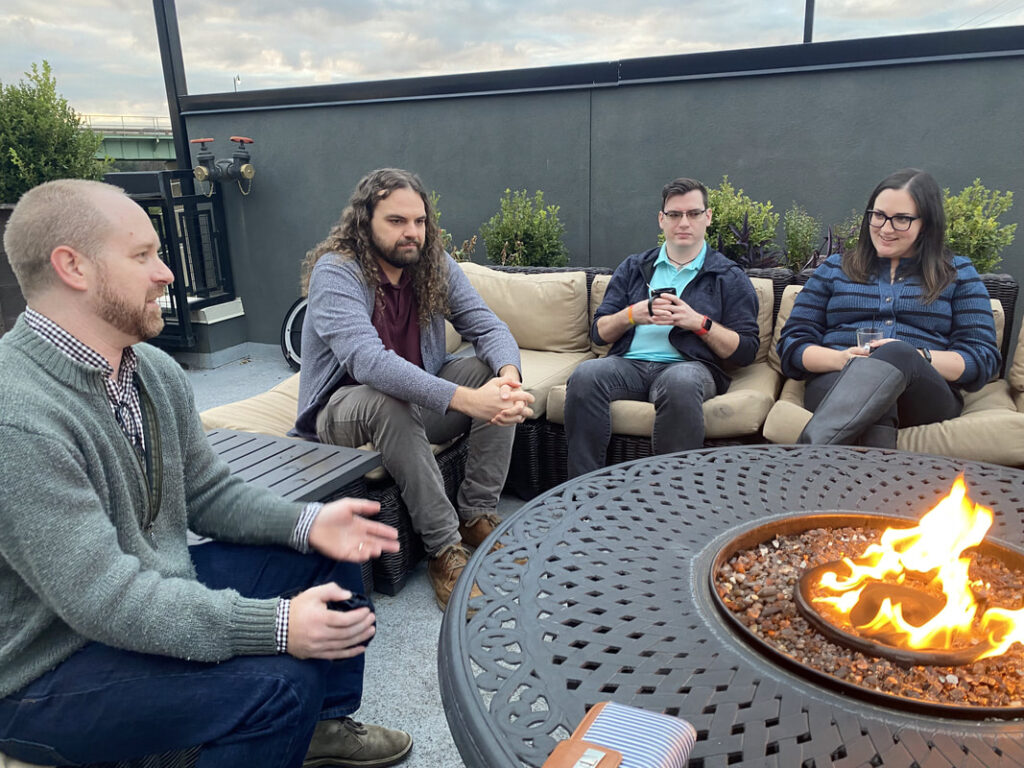
Politics, Broadly
Our “Politics, Broadly” series features OPCaM members in conversation with some of the most prolific political and social media scholars in the world. “Politics, Broadly” is designed to facilitate public conversation around pressing issues while considering a broadly constituted, interdisciplinary version of political communication.
These events are open to the public, but registration is required.
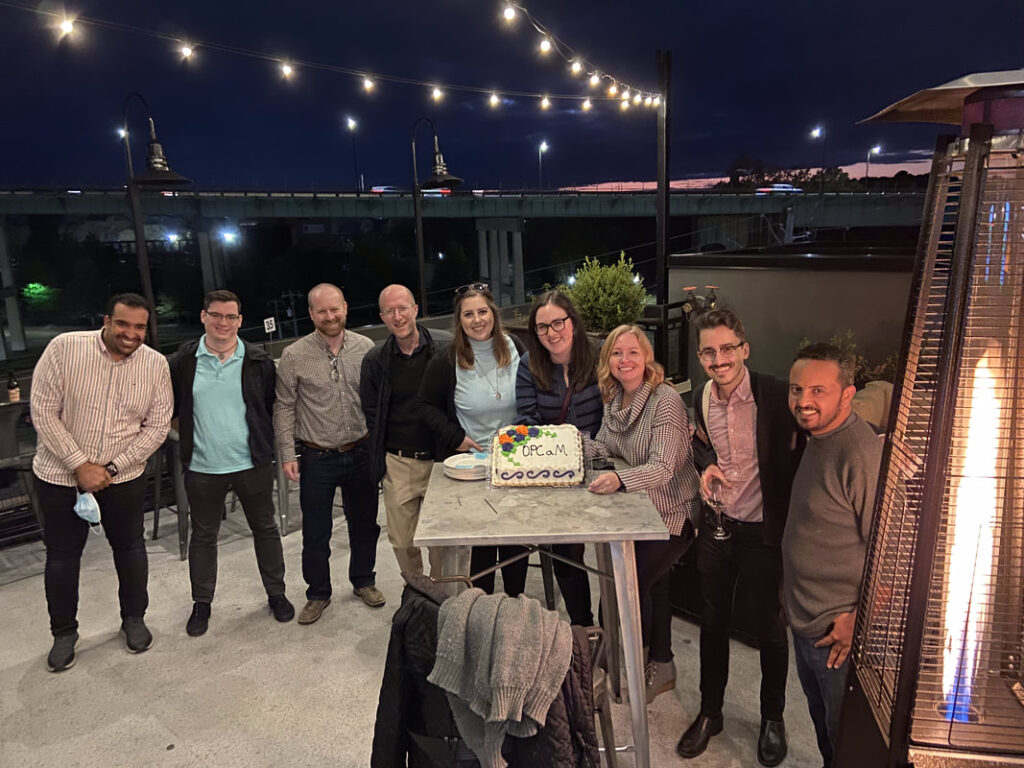
Socials
One of the main purposes in founding OPCaM was to give our members chances to chances to get together, have informal chats about research ideas, and be social. Academia can be an isolating experience, camaraderie is central to OPCaM’s goals. If you’re ever in the Tuscaloosa, Alabama area during one of our monthly socials, feel free to join us! We will also be planning casual socials at conferences in the near future.
Press
Interviews
- AL.com interview (2021) with A.J. Bauer: “Alabama AG Steve Marshall wants to hear from people blocked by social media.”
- Tampa Bay Times interview (2021) with A.J. Bauer: “Inside Fox News, DeSantis is ‘the future of the party.’ And he’s taking advantage.”
- NBC Interview (2021) with A.J. Bauer: “Politicization of ‘vaccine passports’ could aggravate GOP hesitancy, experts warn.”www.nbcnews.com/politics/politics-news/politicization-vaccine-passports-could-aggravate-gop-hesitancy-experts-warn-n1263048
- CNN Interview (2021) with Jessica Maddox: The heroines of ‘RushTok’ received their bids. Here’s why we were so invested in TikTok’s sorority recruitment saga.
- Dallas Morning News interview (2021) with Cynthia Peacock: “In Iowa, most of these things are just like the other, yet road to the White House always starts there.”
- Project Research Podcast interview (2021) with Cynthia Peacock: “Breaking Down Political Communication with Dr. Cynthia Peacock.”
- UA News interview (2021) with Cynthia Peacock: “For politicians, authenticity is key on social media.”
- News Photographer Magazine (2020) interview with Kaitlin Miller: Journalism has a harassment problem — particularly for women in broadcast.
- OneZero interview (2020) with Jessica Maddox: Why you can’t look away from TikTok.
- AL.com interview (2020) with Matthew Barnidge. “Alabama Unmasked: Mask-Wearing Debates a Microcosm of Polarized Issue.”
- AL.com interview (2020) with Matthew Barnidge. “As Alabama Reopens, Will People Wear Masks?”
- WBRC interview (2021) with Cynthia Peacock: “UA research team returns from Iowa Caucus.” www.wbrc.com/2020/02/07/ua-research-team-returns-iowa-caucus/
Articles and Op-Eds
- Nieman Lab Journalism Yearly Predications (2021) by A.J. Bauer, “CPAC is Over (If You Want It).”
- Radical History Review op-ed (2021) by A.J. Bauer, “His Ignominy is His Triumph, a Counter-Obituary of Rush Limbaugh,” The Abusable Past.
- The Hill Op-ed (2021) by Jessica Maddox and Jared Schroeder: “Cancel culture” is just free speech holding others accountable.
- The Startup (2021) original article by Jessica Maddox: Will the gamification of fact-checking work? Twitter seems to think so.
- The Hill Op-ed (2021) by Jessica Maddox. “Banning politicians from social media? Not so straightforward.”
Need an Expert?
Our internationally-renowned, award-winning members are available and happy to speak to you. If you know the scholar you’d like to contact or the area you’re interested in, please see below.
Activism, reforms and social justice
Crisis and health communication
Internet popular culture
Journalism, news and reporters
Dr. AJ Bauer
Dr. Matthew Barnidge
Dr. Kaitlin Miller
Dr. Cynthia Peacock
Misinformation and conspiracy theories
Dr. AJ Bauer
Dr. Matthew Barnidge
Dr. Richard Fording
Dr. Cynthia Peacock
New media technologies
Political parties, democracy, voting and bias
Dr. AJ Bauer
Dr. Matthew Barnidge
Dr. Nicholas Davis
Dr. Richard Fording
Dr. Cynthia Peacock
Gil Carter, Ph.D. student
Mackenzie Quick, Ph.D. student
Social media platforms and industries
Dr. Amber Buck
Dr. Jessica Maddox
Dr. Elliot Panek
Dr. Miriam Sweeney
Mackenzie Quick, Ph.D student
Blog
-
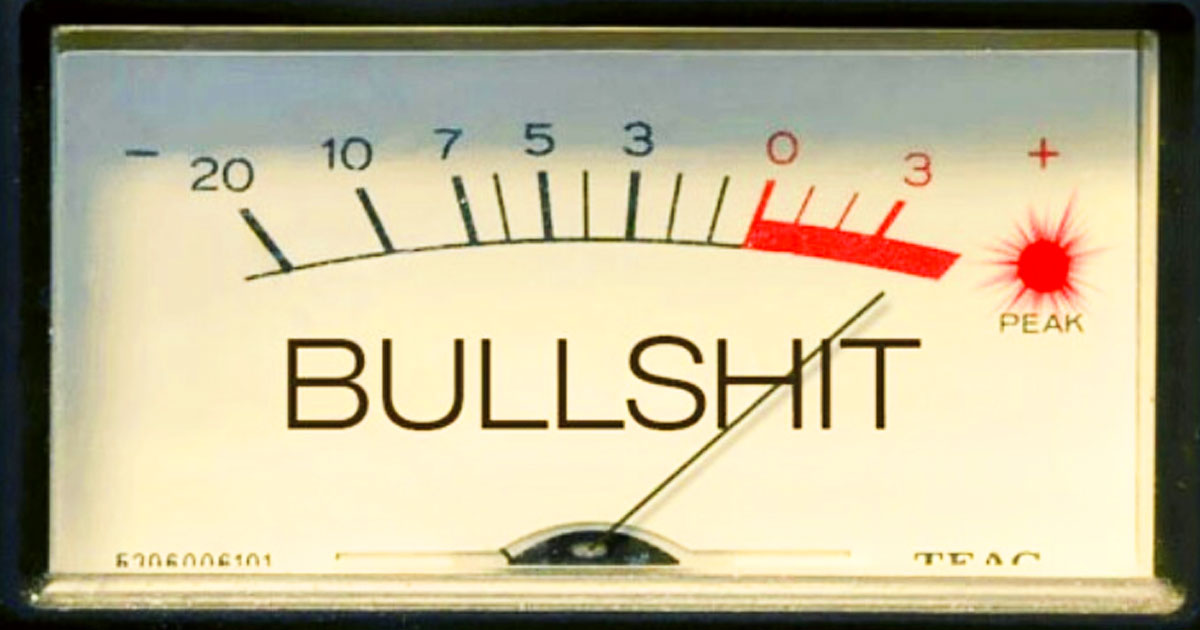
Bullshit Politics: Why Misinformation is not Always a Lie
Ph.D. student Grant Merrill explains the difference between “bullshit” and misinformation and how “bullshit politics” might not be all that bad.
-

Election Mailers
With the 2022 midterms days away, Ph.D. student Gil Carter provides a brief overview of physical mail sent to voters via the U.S. Postal Service.
-

“Waaaaiiit, what is the tea?! The girls are FIGHTING!”: Facebook, TikTok and Political Smear Campaigns
Ph.D. student Mackenzie Quick discusses smear campaigns on popular social media.
-

When Multimedia Journalists Never See It Coming
Assistant professor Kaitlin Miller discusses the safety risks behind multimedia journalists capturing all their own footage.
